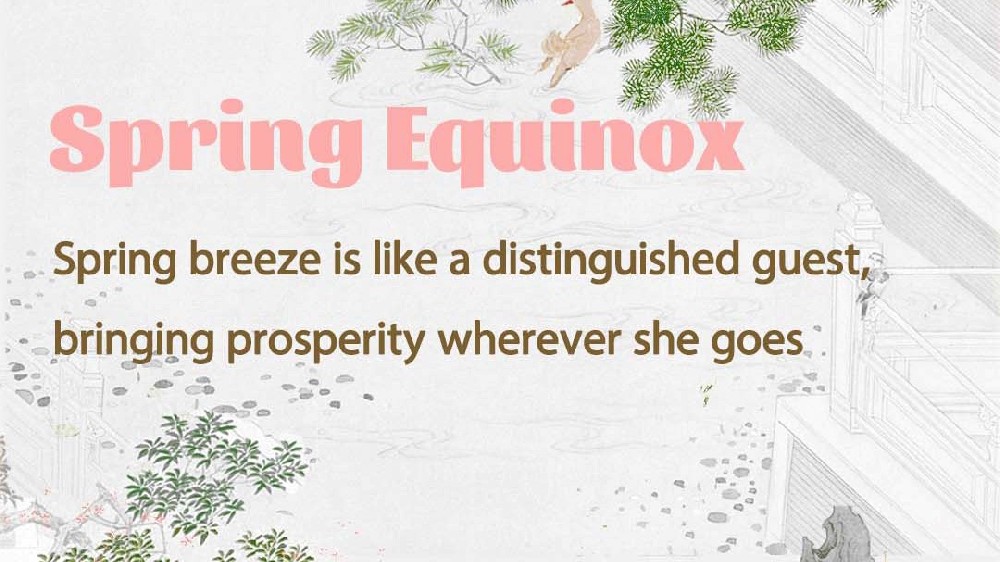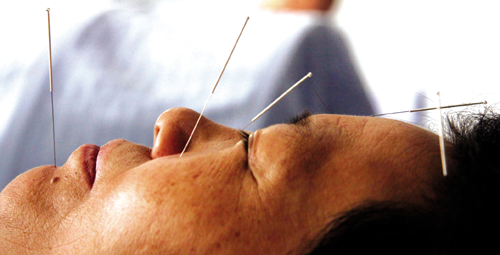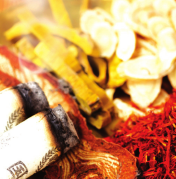Bring back the real Chinese medicine
Acupuncture is one of the most widely practiced Chinese therapies in the country and is gaining increasing popularity in the West.
Traditional Chinese medicine is enjoying a renaissance. But there is growing skepticism about the efficacy of its methods from within its own ranks. Dr Heiner Fruehauf, who claims to have cured himself of cancer using ancient healing methods, shares his views with Matt Hodges in Shanghai.
The real threat to traditional Chinese medicine is not fear relating to its use of toxic compounds, but growing skepticism about the efficacy of its methods from within its own ranks, according to a leading German practitioner of the ancient medical system.
This is leading to a dangerous form of cross-pollination that is divorcing TCM from its holistic roots and seeing classical practices become forgotten, says Dr Heiner Fruehauf, who claims to have cured himself of cancer using ancient healing methods.
"One of the biggest problems today is that many doctors teach traditional Chinese medicine, but they don't fully believe in it," says Fruehauf, founding professor of the School of Classical Chinese Medicine at the National College of Natural Medicine in Portland, Oregon in the United States.
"We've reached an end stage, where the real Chinese medicine that is a science in its own right is slowly disappearing, and where we have some kind of hybrid," he adds. "The modern version we have today is really a combination of Western medicine and TCM."
"I was also skeptical at first, and used to mix both myself," admits Fruehauf, who was speaking at a forum hosted by Three on the Bund in Shanghai in early September.
Such thinking has led to a spike in herbal-remedy prescriptions that contain similar ingredients to those clinically proven by Western medicine. By the same token, ancient practices such as Taoist alchemy, pulse diagnosis and qigong-all of which Fruehauf specializes in-are falling by the wayside.
He later became convinced that TCM can be used to successfully cure serious diseases like cancer, diabetes and heart disease by drawing on classical precepts. These can be found in ancient texts like the Yellow Emperor's Inner Cannon-a de facto road map for TCM-and I Ching, an even older text that draws on cosmology and divination.
"There are so many different ways of treating diseases and ailments-through fasting, through visualization, through things that you could only explain as magic through a modern perspective. There are hundreds of these forgotten methods that people in the villages and mountains still know, but which are not being taught anymore," he says.
Use of medicinal herbs is one of the key elements of China's ancient medical system.
Good medicine?
In some ways, TCM is enjoying a renaissance. The number of its practitioners continues to spike, acupuncture remains trendy, and Chinese lawmakers recently called for its more widespread use in controlling infectious diseases like SARS and Avian Influenza.
Citing government statistics, Xinhua reported recently that H7N9-virus patients had a mortality rate of 9.1 percent if treated with a combination of TCM and Western methods. This rate deteriorated to 30 percent for those depending solely on the latter.
More positive PR came from Tu Youyou, a scientist from Zhejiang province. In 2011 she was awarded for her work in isolating artemisinin decades earlier from sweet wormwood, a popular Chinese medicinal herb. This compound later became the key ingredient in the world's leading anti-malaria drug.
Despite these achievements, Fruehauf says it is debatable whether TCM is enjoying a new golden age.
"If you ask the Chinese government and the American Association of Chinese Medicine, they think it's on the rise. It's getting better every day," he says.
"But while we probably have more licensed Chinese medicine practitioners in China, as well as in the West, than ever before, the quality of those people is lower than ever before. So that's what I'm worried about."
Part of the problem stems from a brain drain as talented students chase more lucrative jobs in the legal professions or in big corporations, and part of it is cultural.
"It's a reality that (the vast majority) of students at a Chinese medicine school, in China especially, don't want to be there. They just didn't pass the exam for the regular medicine school. So, right from the get-go, they're not that interested," he says. "Most of them, five years later, make their money from prescribing antibiotics and other Western medicines."
True believer
Fruehauf, a renowned Sinologist, was born in Germany to a family of medical doctors but has called the US home for much of the past 20 years. He spent two years studying at Shanghai's Fudan University before gaining his doctorate from the Department of East Asian Languages and Civilizations at the University of Chicago.
He was later diagnosed with cancer, which led him to decline a faculty position at Harvard and return to China for the specific purpose of studying Chinese medicine in Chengdu.
He had surgery to remove a tumor but declined to undergo chemotherapy to eradicate the disease and claimed to have found success through TCM methods instead.
Since then, he has spent about one month each year bringing groups of 20 to 30 people to secluded mountain monasteries and retreats in exotic locations like Sichuan and Yunnan provinces to practice tai chi, qigong and other forms of spiritual cultivation with his Chinese teachers.
TCM has come under fire in recent years for its use of toxic herbs that can harm people's health, prompting calls from overseas for greater regulation of the industry. Chinese government began addressing the issue in July by launching a national crackdown on all counterfeit medicines, including those used by TCM doctors.
But Fruehauf sees the media furor as part of a backlash by Western interest groups aimed at constraining the influence at TCM.
"Of course, it's possible that some people can get liver damage from herbs that are heavy-metal polluted, or herbs that are mis-prescribed. But in comparison to how many tens of thousands of people get liver toxicity from Western medicine, there's just no comparison."
Drawing a key distinction with Western medicine, he says the most important thing about TCM is self-empowerment.
"Our job is really to educate people to empower themselves, so they don't need us," he says.
"Of course, as a Chinese medicine practitioner, I'm biased. I think that Chinese medicine has something that's much older than Western naturopathic medicine, and has a much more sophisticated theory behind it."
Related articles
-
 German student becomes online sensation as TCM practitioner in China
German student becomes online sensation as TCM practitioner in ChinaMore
-
 Fans struggling with 'World Cup syndrome' treated at TCM clinic
Fans struggling with 'World Cup syndrome' treated at TCM clinicMore
-
 TCM gardeners get a diagnosis then DIY diet therapy
TCM gardeners get a diagnosis then DIY diet therapyMore
-
 China targets illegal practices disguised as TCM
China targets illegal practices disguised as TCMMore
-
 Doing better in maths: Chinese tips
Doing better in maths: Chinese tipsMore
-
 Ramping up innovations in TCM research
Ramping up innovations in TCM researchMore


